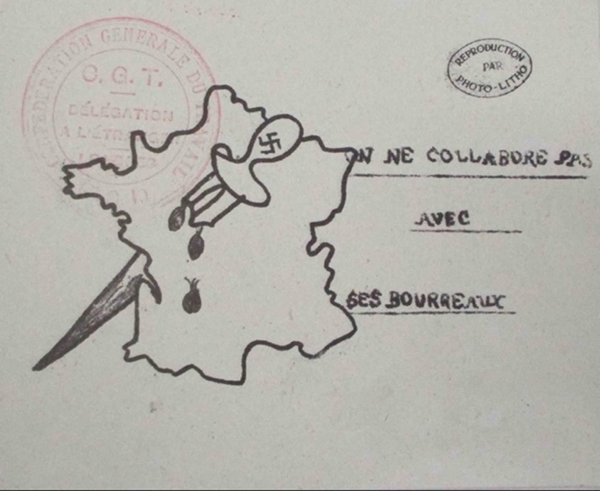Transnational Encounters and Popular Propaganda
Illuminating the penumbra of the French Resistance
DOI:
https://doi.org/10.31273/eirj.v11i4.1556Keywords:
France, resistance, trade unionism, Second World War, transnationalism, propagandaAbstract
Despite the wealth of scholarly research on the French Resistance, there are many aspects that remain in the shadows or ‘penumbra’ surrounding the more brightly-lit central organisations. Focusing on the resources and connections of French trade unionists in London exile — usually peripheral to accounts of wartime trade unionism — this critical reflection explores the potential of the MRC’s collections to open up new research perspectives and possibilities. It foregrounds two key themes meriting further exploration: transnational encounters and popular propaganda. It first examines how French delegates of the Confédération Générale du Travail (CGT) worked not only with their counterparts in occupied France but equally with members of British trade unions and the Labour Party in a complex network of relationships between individuals and associations. Second, it uses a close analysis of some of the resistance flyers received — and sometimes translated and disseminated — by the CGT in London to highlight visual and rhetorical strategies of resistance in popular propaganda. Cumulatively, these case studies invite a wider reflection on how resistance should be defined, and on its spaces, strategies, and balances of power.
Downloads

Downloads
Published
Issue
Section
License
Copyright (c) 2024 Jessica Wardhaugh

This work is licensed under a Creative Commons Attribution 4.0 International License.
Authors who publish with this journal agree to the following terms:
Authors retain copyright and grant the journal right of first publication with the work simultaneously licensed under a Creative Commons Attribution License (CC-BY), which permits use and redistribution of the work provided that the original author and source are credited, a link to the license is included, and an indication of changes which were made. Third-party users may not apply legal terms or technological measures to the published article which legally restrict others from doing anything the license permits.
If accepted for publication authors’ work will be made open access and distributed under a Creative Commons Attribution (CC-BY) license unless previously agreed with Exchanges’ Editor-in-Chief prior to submission.
Authors are able to enter into separate, additional contractual arrangements for the non-exclusive distribution of the journal's published version of the work (e.g., post it to an institutional repository or publish it in a book), with an acknowledgement of its initial publication in this journal.
Authors are permitted and encouraged to post their work online (e.g., in institutional repositories or on their website) prior to and during the submission process, as it can lead to productive exchanges, as well as earlier and greater citation of published work. (see: The Effect of Open Access)
